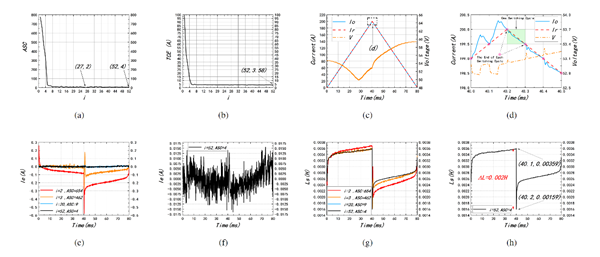Researchers Propose New Method to Improve Power Supply Control for High Intensity Heavy-ion Accelerator Facility
The project team of High Intensity Heavy-ion Accelerator Facility (HIAF) has recently achieved great results in research on power supply control with high power, high precision and fast cycle. The results were published in IEEE Transactions on Industrial Electronics.
HIAF will provide highest pulse current heavy ion beams in the world. In order to avoid the loss of beam caused by the avalanche effect generated by the space charge and the strong flow dynamic vacuum, the next generation of high intensity accelerators should accelerate ions quickly to high energy, which requires the extremely fast current change rate and high dynamic tracking precision of the magnet power supply. Thus, it is essential to improve the control accuracy of the magnet power supply for HIAF.
In order to improve the tracking precision of the magnet power supply with a wide dynamic range, the project team proposed a new analytical model with optimal control method and kinetic inductance fine-tuning method.
The researchers carried out the experiment on a 200Hz triangular wave scanning magnet power supply. Researchers then successfully identified the kinetic inductances corresponding to different triangular waves and used these kinetic inductances to calibrate the model. The current error at the end of each switching cycle is controlled from 0.5A to 0.015A, which is close to the measurement accuracy limit. Therefore, the method is verified.
The new method greatly improves the control accuracy and is of great significance for the fast cycle acceleration mode of the next generation of high-current heavy ion accelerators.
This work is supported by the national key research program "Key Beam Physics and Core Technology Pre-research for a New Generation of High Current Heavy Ion Accelerator".

Fig.1 The experiment results of 200A waveform by scanning power supply. (Image from EEE Transactions on Industrial Electronics)
Contact Information
Institute of Modern Physics
Email: fangliu@impcas.ac.cn



 甘公网安备 62010202000713号
甘公网安备 62010202000713号


